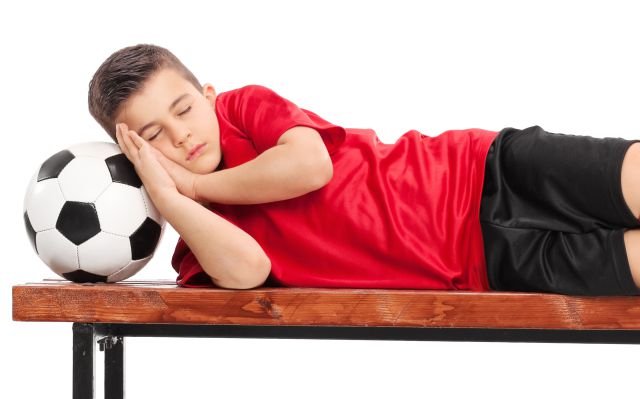2.7. Sleeping Habits
SLEEPING HABITS
💤 Sleeping well is essential for the recovery and the rest of footballers and the entire population.
💤 Sleep is an essential part of recovery management, as sleep disturbances after a match are common and can have a negative impact on the recovery process.
💤 Irregular hours and routines after a match or training can lead to sleep disorders that directly affect the recovery processes in football; hence it is common for sleep times to be provided for the entire team.

Source: https://es.123rf.com/photo_42870668_kid-en-un-uniforme-de-f%C3%BAtbol-de-dormir-en-un-banco-de-madera-aislada-sobre-fondo-blanco.html
Here are a few tips of advice that can help you with your sleep:
💤 It is best to have a dark and quiet environment, wear earplugs, listen to relaxing music and adopt regular sleep schedules.
💤 Conversely, caffeine consumption before the game is not recommended to improve performance, poor nutrition and hydration after the game ends, can cause sleep disorders.
💤 A period of 8 hours (on average) is considered ideal.
💤Not by sleeping more you will recover better, but quite the opposite. Many footballers indicate that after sleeping 10 hours during the day it causes them to be more tired during the day and with less concentration.
💤A 30-45′ nap is recommended to continue promoting rest once you have trained in the morning.
Why is it done?
💤When playing a soccer game, soccer players are subject to a high physical and mental workload, as well as high emotional stress. Irregular sleep schedules influence sleep regulation.
